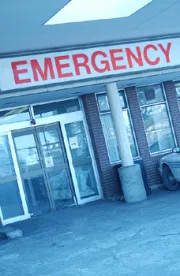In Home Star Bank and Financial Services v. Emergency Care and Health Organization, Ltd., 2014 IL 115526, the Illinois Supreme Court significantly narrowed the scope of immunity afforded to physicians under the Good Samaritan Act. Additionally, the Court's decision is likely to impact emergency medicine physician contracts and hospital policies, and lead to future litigation regarding those entitled to immunity under the Act.
Factual Background
The defendant was an emergency room physician employed by another defendant, Emergency Care and Health Organization, Ltd. (ECHO), which had an exclusive emergency room services agreement with the hospital. ECHO paid the physician hourly for his work in the ER. The physician's employment contract required that he abide by hospital policies, one of which required an ER physician to respond to code blue alerts in the hospital and direct the code blue team.
During his shift, the physician responded to a code blue for the plaintiff, an inpatient on another floor that the physician had never met or treated. The physician attempted to intubate the plaintiff, but the plaintiff ultimately suffered permanent brain damage, resulting in a negligence action being filed against the physician and ECHO.
The patient was not billed for the physician's services for responding to the code blue. Therefore, based upon prior interpretations of the Good Samaritan Act, the physician and ECHO moved for summary judgment because no bill was generated for the physician services.The circuit court granted summary judgment.
The Good Samaritan Act
Immunity under the Act was originally limited to physicians providing emergency care without fee "at the scene of a motor vehicle accident or in case of nuclear attack." The legislature, however, amended the original Act multiple times, and it currently reads:
Physicians; exemption from civil liability for emergency care. Any person licensed under the Medical Practice Act of 1987 or any person licensed to practice the treatment of human ailments in any other state or territory of the United States who, in good faith, provides emergency care without fee to a person, shall not, as a result of his or her acts or omissions, except willful or wanton misconduct on the part of the person, in providing the care, be liable for civil damages. 745 ILCS 49/25.
In Home Star Bank, the Court set out to resolve whether the term "without fee" is ambiguous, and if so, how that term should be interpreted.
"Without Fee" Determined to be Ambiguous
The Supreme Court noted that, prior to 2012, the appellate court believed the term "without fee" was unambiguous, and therefore, interpreted it narrowly.However, the Supreme Court found the term "without fee" is "clearly capable of being understood by reasonable persons in more than one way." The Supreme Court relied upon various dictionary definitions of "fee," pointing out that some of those definitions included not only a charge, but also compensation or payment being received. As a result, the Court found the term "fee" broad enough to include a patient being billed or a physician being compensated.
Illinois Supreme Court Defines "Without Fee" More Broadly
Because the Illinois Supreme Court determined that "without fee" was ambiguous, it set out to define the term in a manner consistent with legislative intent. First, the Court pointed to dictionaries defining "Good Samaritan" and "good-samaritan law" to include those who voluntarily or gratuitously provide help or aid. Second, the Court cited the Act's statement of legislative purpose, which twice refers to those who "volunteer" their time. Third, the Court referred to legislative history, which purported to show that those voting for the Act intended immunity to extend to physicians voluntarily rendering care outside of an office or hospital setting, and not those receiving compensation. Fourth, the Court was persuaded by a decision from the California Court of Appeals, which found the purpose of a Good Samaritan law is to encourage physicians to act when they have no duty to do so, and to protect those providing services outside their typical area of expertise or working environment.Finally, the Court found that "the narrow definition previously adopted by the appellate court thwarts legislative intent," and one of the presumptions of statutory construction is that the legislature does not intend absurd, unjust or inconvenient results. The Court determined that the narrow definition could unjustly oppress the poor, because "[i]f the . . . doctor provided negligent emergency care to an indigent uninsured patient and the hospital did not bill the patient because it would not be able to collect payment, the doctor would be immune under the Act." For these reasons, the Court held that a "fee" exists when the patient is billed for services or the physician is compensated.
In addition to the fact that the physician was compensated for the time spent providing the treatment at issue, the Court noted that he was required by contract and hospital policy to respond to code blue alerts as part of his ordinary duties. The Court's focus on the requirement of employment to respond to code blue alerts may be essential to preserving the defense for a traditional Good Samaritan, who happens to be unlucky enough to be receiving compensation at the time of rendering care. For instance, a physician associated with a metropolitan medical group or hospital may have an agreement to travel to a rural location one day per week to see patients, and receive compensation for travel time. If that physician comes upon a car accident while traveling to or from the rural location, surely the physician is entitled to immunity for any care he provides. Similarly, if a salaried physician employed by a hospital provides emergency care while walking across the street to pick up lunch or while on the sidewalk smoking, that physician too should be entitled to immunity under the Act.
Conclusion
The Illinois Supreme Court's opinion in Home Star Bank significantly limits the scope of immunity afforded under the Good Samaritan Act. The decision is likely to impact emergency room physician contracts and hospital code blue policies. Emergency room physicians, their employers, and insurers, will undoubtedly have serious concerns about responding to code blue alerts, most often for patients the physician has never seen. Hospitals, on the other hand, may need experienced emergency medicine physicians responding to code blue alerts in certain situations, but hospitals may be forced to abandon that practice in light of the Illinois Supreme Court's decision. Furthermore, future clarification of the decision is almost certain, because physicians will be called upon to act as true Good Samaritans in situations where they are coincidentally being compensated. This decision should not preclude immunity in those situations, but a strict reading of the opinion may lead some courts to rule in such a manner.




 />i
/>i
